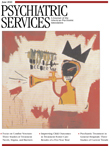On May 11 President Obama released the Administration's 2010 National Drug Control Strategy, which establishes five-year goals for reducing drug use and its consequences. The strategy, which was developed by the Office of National Drug Control Policy (ONDCP) with input from federal, state, and local partners, shifts national policy away from the "war on drugs," declared by President Nixon in 1971.
The strategy emphasizes prevention of drug use before it starts, integration of evidence-based treatments into the mainstream health care system to reduce consumption and demand, innovations in the criminal justice system to break the cycle of drug use and crime, and international partnerships to disrupt transnational drug-trafficking organizations. In a statement accompanying the policy's release, National Drug Policy Director Gil Kerlikowske noted that the Obama Administration views drug use more as a public safety and public health problem than a criminal matter that emphasizes punishment and incarceration.
The strategy establishes five-year goals to reduce the rate of drug use among youths by 15%, decrease use among young adults by 10%, reduce the number of chronic users by 15%, lower the incidence of drug-induced deaths by 15%, and decrease the prevalence of "drugged driving" by 10%. In addition, the strategy identifies three challenges on which the Administration will focus this year: prescription drug abuse, which is the fastest-growing drug problem in the country; drugged driving, which recent weekend roadside surveys have found involves one in six drivers; and prevention of drug use. The strategy document notes that persons who reach the age of 21 without developing an addiction are unlikely to develop one later.
Critics have pointed out aspects of the policy that do not reflect the balanced approach emphasized by Administration officials and that maintain the status quo, particularly in regard to federal drug control spending. In the fiscal year 2011 budget, 64% of total spending is for domestic law enforcement, interdiction, and international support, whereas 36% is targeted at prevention and treatment—levels nearly identical to those of previous Administrations. Others point out that although federal officials have acknowledged that interdiction and eradication in countries such as Colombia and Afghanistan have no impact on the availability of drugs in the United States, the new strategy nevertheless embraces these approaches.

